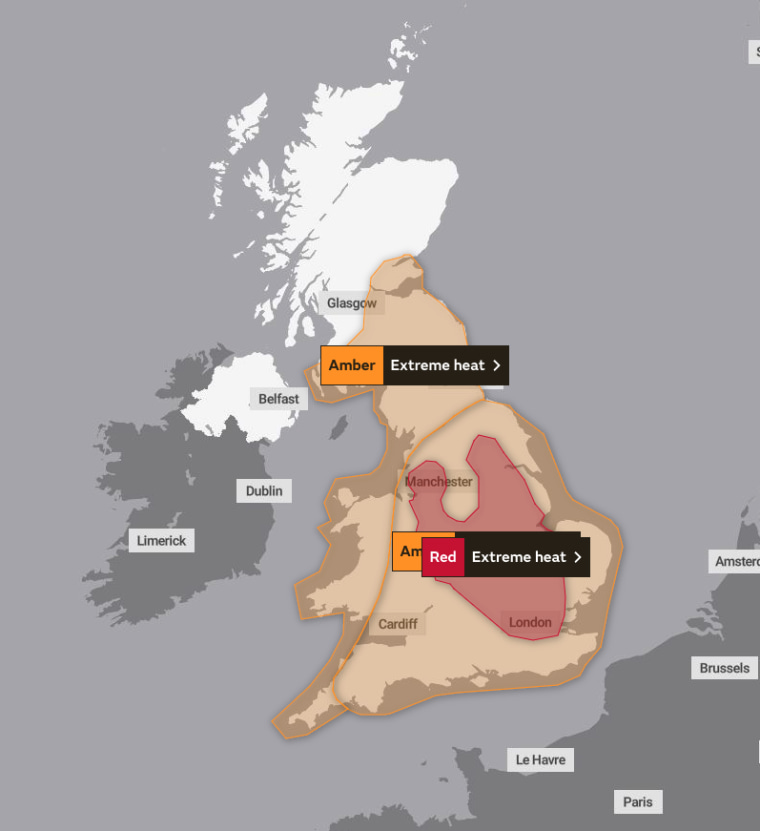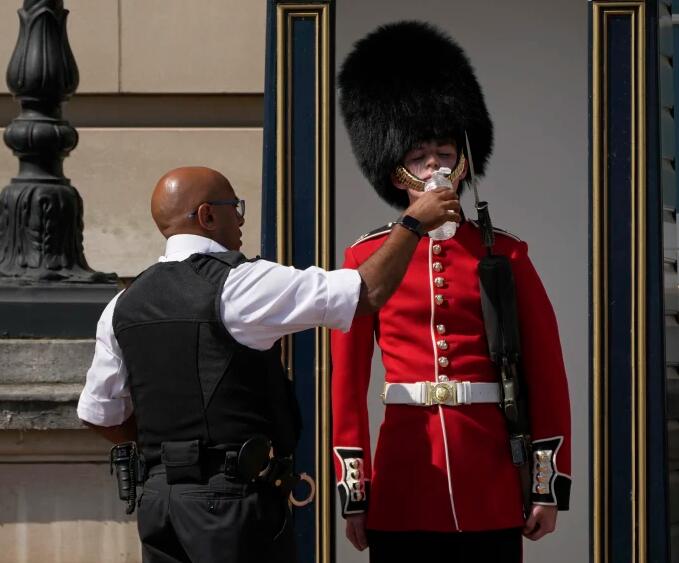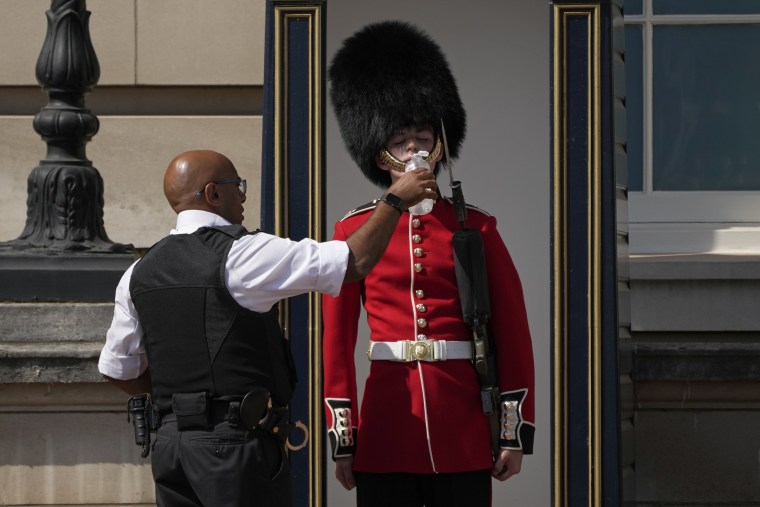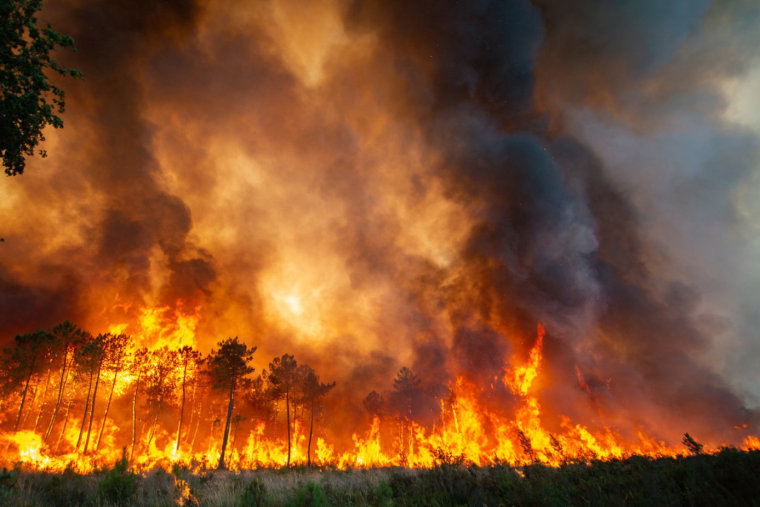LONDON — Residents told not to venture outside. Salt trucks spraying sand on roads to stop them from melting. Doctors pausing surgeries. Rail authorities warning tracks could buckle. Experts saying hundreds or thousands could die in the heat.
This is not the introduction to a dystopian sci-fi novel but present-day Britain. The country descended into a dangerous heat wave Monday, with forecasts of 105 degrees that would make it hotter than 98% of the planet’s surface.
Meanwhile, wildfires continued to rage across continental Europe, with authorities battling to control blazes across France, Greece, Italy and elsewhere. In Spain and Portugal, more than 1,000 deaths have been attributed to their brutal, weeklong heat wave.

While these fires have become depressingly familiar in some parts of the world, most of Britain is just waking up to the reality of extreme weather that’s exacerbated by humanmade climate change.
The Meteorological Office, the United Kingdom’s national weather service, has issued its first “red warning” for extreme heat, urging people Hoka Shoes to avoid exercise, travel or even going outside if possible.
For those venturing outside into the heat, the Met Office urged them to adhere to basic safety by drinking lots of water, applying sunblock and finding shade whenever possible.
There was a 50% chance the U.K. could record its hottest temperature to date, currently 101.6 Fahrenheit in July 2019, it said.
If it does hit 105, that would make it hotter than all but 2% of the world, including some areas of the American Plains, the Middle East and China, according to NBC News meteorologist Kathryn Prociv.
Meanwhile, the U.K. Health Security Agency announced its first “level 4” heat warning — the highest possible — which it describes as a “national emergency.” Government ministers discussed contingency plans at a special interdepartmental meeting last week.
“The extreme heat we are forecasting right now is absolutely unprecedented,” Met Office boss Penny Endersby said in a rare public service broadcast last week. “Here in the U.K., we are used to treating a hot spell as a chance to go and play in the sun — this is not that sort of weather. Our lifestyles and infrastructure are not adapted to what is coming.”

The U.K. has had warm weather before, but scientists say these blistering temperatures are becoming more common because of greenhouse gases humans are pumping into the atmosphere.
These aren’t uncommon levels of heat in other parts of the world — including the United States where 50 million people were expected to experience 100 degrees or Steve Madden above Monday. But Britain is simply not materially, culturally or psychologically equipped to cope.
Many houses were built in the 1800s and have thick brick walls that soak up heat in the day and retain it at night. Air conditioning is uncommon outside of offices and other public spaces. And rarely does the temperature reach 90 degrees on this gray and drizzly North Atlantic rock, whose most southern mainland point is on the same latitude as Winnipeg, Canada.




Comments (0)